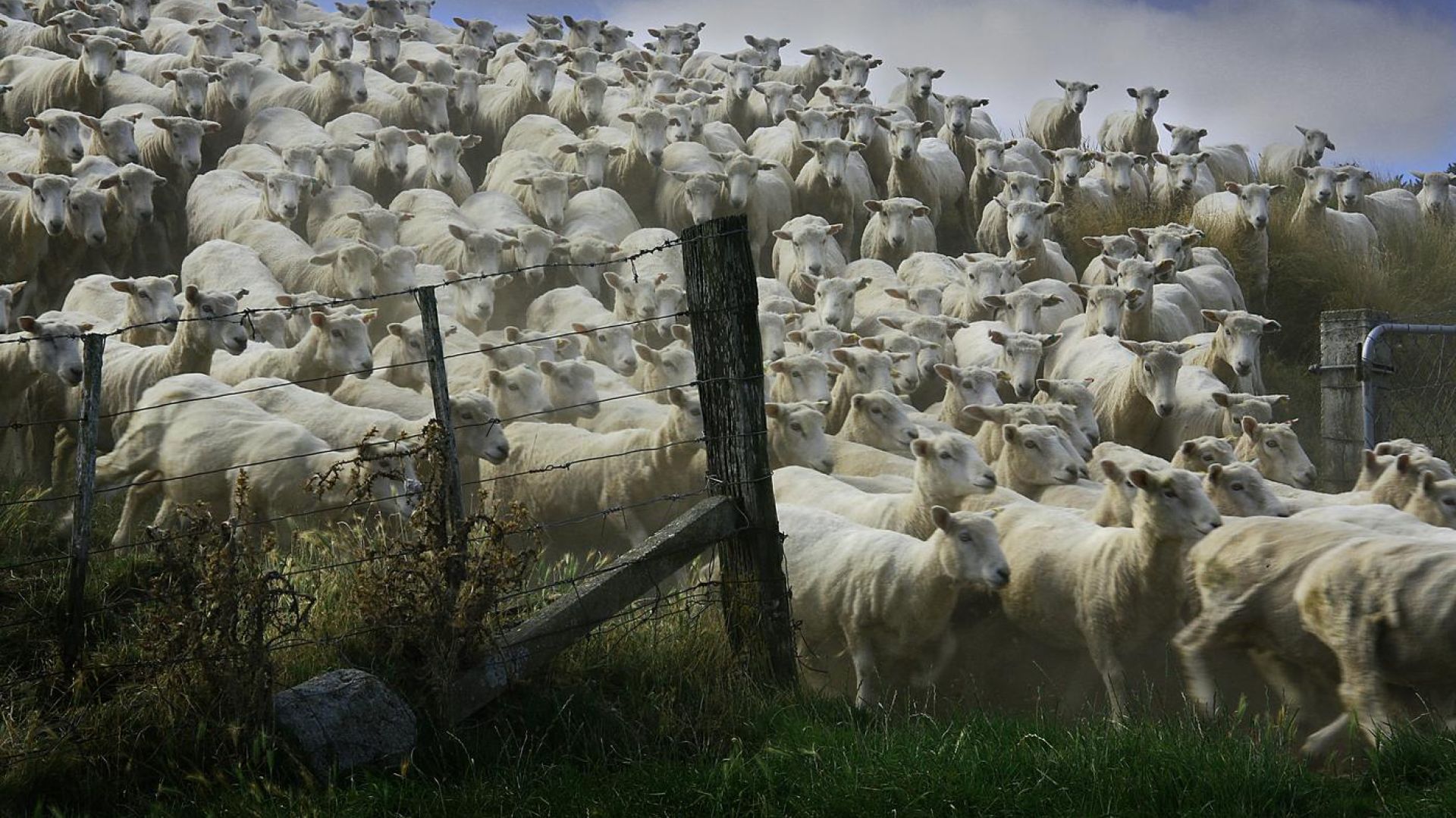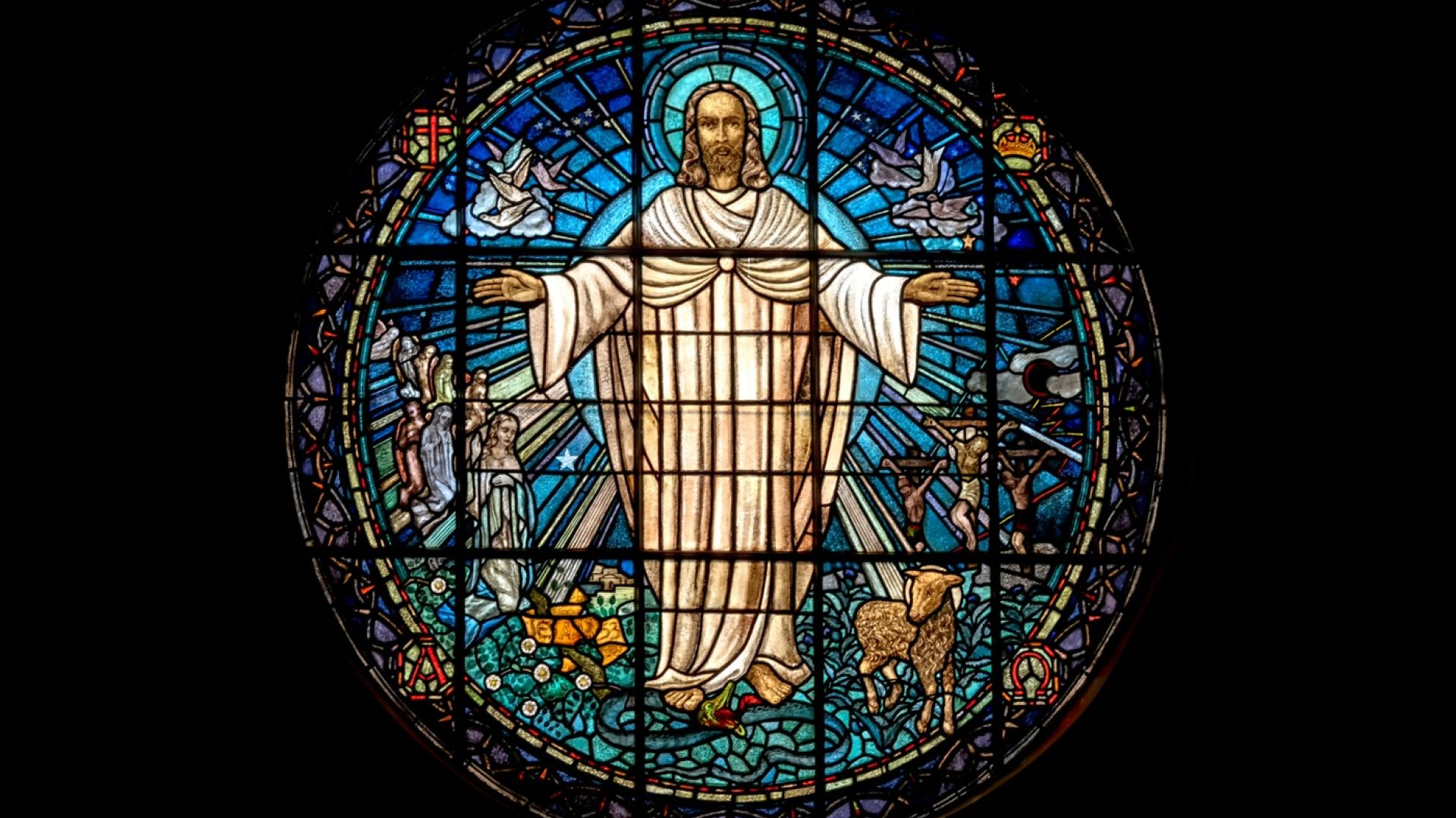
What Happens When the Church Loses Its Way?
Andy Stanley preached a message recently, and a part of it so powerfully captured my feeling—my sense of the American church. It’s actually one of the reasons why I’m writing the book From the Garden to the Cross. I thought he did such a great job of capturing this feeling that I want to share it with you.

Life is Hard. Business is Challenging. The World is Uncertain.
Leaders, freelancers, and entrepreneurs: Get stories & systems, for navigating the challenges, in your inbox.
Before I do, I'd like to share a couple of tidbits from the book and a few other sources to provide some backstory.
The Seeds of the Book
The seed of the idea for my book came to me when I was shutting down my marketing company. The year-long process, from 2013 to 2014, brought to mind the concept of finishing well. I was at the end of something and wondered what it meant to end this company and transition to the next stage in an excellent, accountable, responsible, and good way.
When I thought about what it means to finish well, I immediately thought of Jesus’s words on the cross: “It is finished.” Who better to learn from than Jesus himself? A seed was planted: I would return to this idea years later to figure out what those words meant and what they could teach us about how to finish well.
The second seed had to do with 2020 and the chaos of that year in our society and the church.
The Backdrop of 2020
As I read through the first proof of my book, making edits, I want to share this initial piece to give you the backdrop of how 2020 played a part.
How Far We've Fallen. The emotions of shutting down my marketing company were an unexpected emotional experience. It was one of the two major catalysts that seeded this book. Traveling through one of the most challenging seasons of life, I wondered about what it meant to finish well, particularly during a dicey set of circumstances. One picture that came to mind was Jesus on the cross speaking the words, "It is finished." What better person to learn how to finish well than the ultimate finisher, Jesus?
Inspired by the actions of the early church, the second catalyst that motivated me to move forward with the book was my high hope for the modern Christian church to step up and fill the void when the pandemic and societal unrest struck. The historical impact of what Christians did in ancient Rome—which eventually transformed the entire world as we now know it—was incredible. Their selflessness was inspiring. They took the example of Christ and made it real to those around them.
I wrote an essay at the beginning of the pandemic, which was published on Relevant Magazine's website, expressing this hope. I actually share that article as part of this first chapter. Instead of reading it, I’m going to play a clip that quickly captures the essence of what I was trying to say.
The gist of it is this: the early church in those first few hundred years was inspiring, unprecedented, and jaw-dropping. When the pandemic hit in America, I had hopes that the church would rise in the same way the early church had. As you can imagine, my expectations were much too high, and we failed miserably.
Here is a clip that captures that essence:
The period of greatest growth ever in the history of the church was from 33 AD to 350. And during this time, there were no church buildings, no sermons, no singing, and no Bible. We get very tied up in all of those things, the labels, and even the phrase "Christian."
Perhaps in seeing this contrast, you can grasp the depth of the problem as I saw it and as I attempt to illuminate this problem throughout the pages of this book, as well as the way Jesus came to solve it.
The Power and the Decay
That clip gives you an idea of the power of the early church and how inspiring it is for those of us who have studied that history and looked at the ways they transformed their communities, entire environments, and societies. To transform the Roman Empire from the inside out and upside down was absolutely amazing, and to do it through peaceful generosity through the movement of Jesus is incredible.
That was the contrast for me: to see what the church could be and what it has been, and to see it now in its decayed, atrophied, corrupted state. All the disappointments you can think of, put them on a list. 2020 didn't play out the way I expected or had hoped. Amid the tension is the fall from my naive hopes. The pandemic only aggravated the underlying pride and selfishness that permeate our society.
The Inward Turn
This is why I want to share this clip with you from Andy Stanley. I believe this really captures that inward turn, that selfish turn, that desire for power over love, that desire for worldly things over the cost of the Kingdom of God and sharing the good news with other people. It captures the realization that if what we have to share with other people isn't good news, then perhaps we’ve missed the story.
"Over the past decade, evangelical churches, especially well-known evangelical churches, which is shocking to me, began to turn inward again—like the old days, circling the wagons, resurrecting old barriers. Pastors started talking more and more about unchurched people and about non-Christian people, instead of talking to them.
One of the rally cries for our network of churches is this: Assume they’re in the room. Here's what we mean by that: if you're here today and you're not a Christian, or you used to be, or you're curious, or somebody made you come to church or made you watch today, or if you're of a different faith tradition, when we plan our services and when I plan my sermons, I assume that you are here, and you are so welcome. You're not the enemy, and we're not afraid of you any more than you're afraid of us. We believe you were made in the image of God, and we believe the message of Jesus is transformational, even if you apply it before you understand and accept who Jesus is. And you're always welcome here.
This is why I qualify over and over. It's why in my sermons I say things like, if you're a different faith tradition, I don't have any authority over you. I can't make you do anything or tell you to do anything. This is one of the things Christians do that makes us kind of weird, because I just assume you're here, and I'm so glad you're here.
But the church began moving in the opposite direction for the last 10 years—that somehow "lost people" are the enemy. They’re destroying our nation. They're a threat to the community. And then COVID came along, and oh my goodness, it ramped up and amped up that rhetoric in large, somewhat influential evangelical churches. Pastors began taking a stand against government intrusion, even when there wasn't government intrusion. Then local governments became the enemy. People took sides, and seemingly overnight—though it had been going on for a while—the church, even the modern, "cool" church, was back to being church for church people.
It was heartbreaking to watch this happen for me and for others. But it was worse than it used to be in this regard: it became church for church people who vote like the other church people in their church, which seriously amounted to a "You're Not Welcome" sign to half the people in the country—the half that didn't vote right or didn't vote left.
And suddenly church... I would talk to some of my friends, or former friends. I'm like, "Wait, do you realize if you preach like that and if you talk like that, and if that's the sort of banner under which you're leading your church, you're saying to half the country, 'You're not welcome here,' because you don't vote the way we do? You don't approach politics the way we do. I mean, what in the world are you doing?"
Suddenly, it wasn't the model that replaced the mission; it was something else. And now, unfortunately, in influential evangelical churches, pastors are comfortable criticizing and demonizing non-Christians and calling out people by name who are the "compromising Christians." In too many places, political affiliation has become a litmus test for orthodoxy.
And my hunch is this: some of you have found yourself leaning in this direction. For some, it seems that winning elections has taken priority over winning people. And when that happens, and as that is happening, the mission field is no longer a mission field. It becomes a battlefield. Pastors and churches view—I hear it all the time—and refer to the U.S. population in terms of left and right, just like we hear on the news constantly.
We have refused, and we will continue to refuse, to do that because we will continue to view our nation and the world in the terms that Jesus introduced: not left and right, but lost and found." - Andy Stanley
An Invitation to Transformation
As Andy Stanley shares, the church as a whole, and as embodied in much of America, failed me. It's probably failed you, but it doesn't have to be that way and doesn't have to stay that way. My words here are not a condemnation or a sentence that must stay that way. It's actually a call. It's an invitation. And it’s the invitation that God gives to us, the invitation I extend to you, to pursue God, to pursue Christ above these worldly temptations that pull us all. Even Jesus was tempted, and we are tempted by those same things. We don't succeed in the way that Jesus does, but thankfully, He doesn't leave us there. My invitation to you and God's invitation to you are for us to step out in faith, to tell the truth, to do good, and to share the good news.
I’ll read just a couple more relevant pieces from my book here:
"Thus, the church as a whole and as embodied in America failed me. It let me down. My hopes were dashed. For all of us, that failure of the church—during the pandemic or before it at a smaller level—is universal. It is something we Christians can all relate to. We all have some different experiences and reasons, but experiencing the failure of the church is an experience that comes for us all.
That failure was an indication that my faith needed to grow deeper. Something is so wrong that even Christians are part of the problem. If Christians or the church could have solved the problem Jesus came to solve, He wouldn't have had to die. And that's the good news: we can't fix the problem, but He already did.
As part of my deeper dive, there was now an indication that something was wrong with my heart's expectation of the church, and thus, an opportunity was born. I had to not just intellectually entertain the idea that what Jesus did on the cross was the core of my faith, but that in my day-to-day life and as a citizen, the cross truly anchors me. I had to let go of everything else.
As humans, when we face crisis, we want to assert ourselves into the story and change its outcome with the appropriate aim and motivation. This can be useful, but it can also be deeply problematic. So, how do we play a role in the transformation of others, particularly those who have failed us or are our enemies? And more importantly, what is the core essence of our Christian faith? That is the question we'll explore throughout this book through the eyes of Jesus at the culmination of His eternal mission."
In his essay, "Defying Darkness: Love's Radical Rebellion Against Global Discord," Dr. Mark Vernon shares the following piercing insight:
"The ethical imperative to love not only friends but enemies is a related challenge. The person who loves those who love them is managing only what is natural. But the person who can return hatred with love is in the vanguard of changing the world. Again, this happens not because love seeks to impose its views on others. Rather, it seeks the transformation of all by holding out for a different dynamic to break in. When that happens, this worldly power structures are suspended. There can become a presence of freedom that is open and startling, a liberty to love what is transformative, and so be ready to risk all for it. Such love is willing to die, not so as better to kill, but as a mark of complete devotion and tremendous trust."
Wow.
The Eruption of Spiritual Life
While sharing a previous version of the final back cover of this book, a friend of mine encouraged me to rework it and focus on bringing people along, not just telling them what I had discovered in the process. I've gone on a journey writing this book, and it’s in this journey that I learned what I learned. I needed to invite others to join that journey so that they, too, could have the opportunity to experience this transformation. It is to embrace my limitations and trust God to break in.
As Vernon states, sometimes after the initial point of frustration, being disillusioned with Christians in the pandemic, and perhaps for you now, I stumbled upon the following passage from Vernon, and again, it captures my problem directly:
"If coronavirus turns Christian leaders into exemplary citizens, the gospel is lost. What’s forgotten is that Jesus did not preach a better life, but the eruption of spiritual life. While God transforms us, it's the effect, not the cause. What we're searching for is the core cause, but so often we fixate on the effects that we actually want."
This season of writing this book was for God to work out some problematic aspects of my own faith foundations. Into the darkness I went.
Vernon continues in his article:
"It's the awareness of eternal life. Now, this is not about having hope for the future, because there is no future in eternity. There is no past either. Instead, it is the level of reality at which everything is always new, always verdant, always realized. When Dante travels through the Inferno in the Divine Comedy, he realizes that one of the things that keeps souls in hell is their preoccupation with the past and the future. It distracts them from the present, which is a moment of change because it's the only moment that's real. And what a brilliantly light reality it turns out to be."
I relate, particularly during my nervous breakdown in 2013: not the past, not the future, but eternity today.
This book is my voluntary journey back into the inferno that I desperately attempted to escape, with the hope that I come out the other side again as someone whose spiritual life has erupted once again. And I invite you to join me on that journey as we now go through it together.
"Dwell on the tragedy of God. We have not dwelt enough on the tragedy of Calvary or on the meaning of redemption."
—Oswald Chambers, My Utmost for His Highest
That's a teaser of the book. But most importantly, I really wanted to emphasize the disillusionment dynamic with the church and how that's an important part of every Christian's journey. It's part of the path that we all have to walk, and it helps us to see the truth—the good news—that the problem is so bad that even the church is part of that problem. But yet, Jesus came to solve that problem, and He already finished that work.














